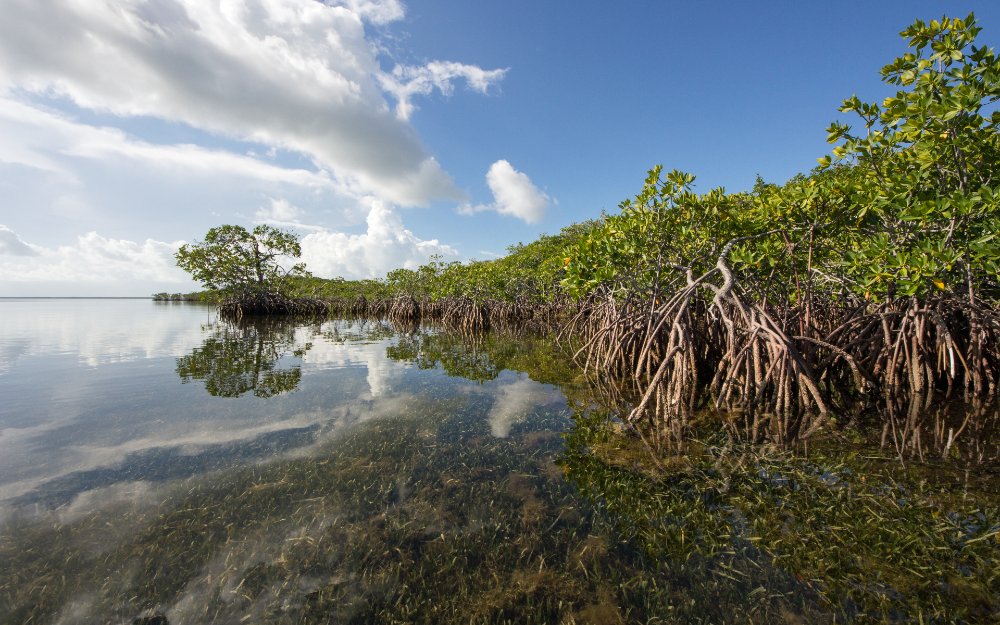Module 2: Lesson 1
Students will play a game to determine food webs, food chains, and biotic or abiotic components of a mangrove ecosystem. They will play an outside game to reinforce what they learned about the fragile yet resilient mangrove forests. Then they will participate in a lab activity to determine whether mangroves grow better in salt or fresh water. Lastly, they will use this experiment as a model of the issues mangrove forests are facing due to sea level rise.

Lesson Plan
Essential Questions:
- What are some biotic and abiotic factors in a mangrove habitat?
- What are the roles of and relationships among producers, consumers and decomposers in the process of energy transfer in a mangrove food web?
- What are the characteristics of populations within a mangrove forest, such as number of individuals, age structure, density and pattern of distribution?
- When conducting an experiment, what are the different variables? When using a scientific model, what are the limitations and benefits?
Objectives: By the end of this lesson, students will be able to:
- Explain and illustrate the roles of and relationships among producers, consumers and decomposers in the process of energy transfer in a mangrove food web and characterize the biotic and abiotic components in a mangrove habitat
- Explain the pathway of energy transfer through trophic levels and the reduction of available energy at successive levels
- Describe and investigate various limiting factors in a mangrove ecosystem and their impact on native populations, including food, shelter, water, space, disease, parasitism, predation and nesting sites
- Identify test variables (independent variables) and outcome variables (dependent variables) in an experiment, and the limitations and benefits of a scientific model
- Explain how hypotheses are valuable even if they turn out not to be supported by the data
Create Connections
Ready for more? We offer many ways to engage with our research.
Standards-aligned programs create a more immersive experience for your students and enhance the learning outcomes of Mission Inspire.
Our professional development camp guides educators in making curricula that connect students with real university research.
Free activities and resources connect learners everywhere with experts from the nation's fourth-largest public research university.